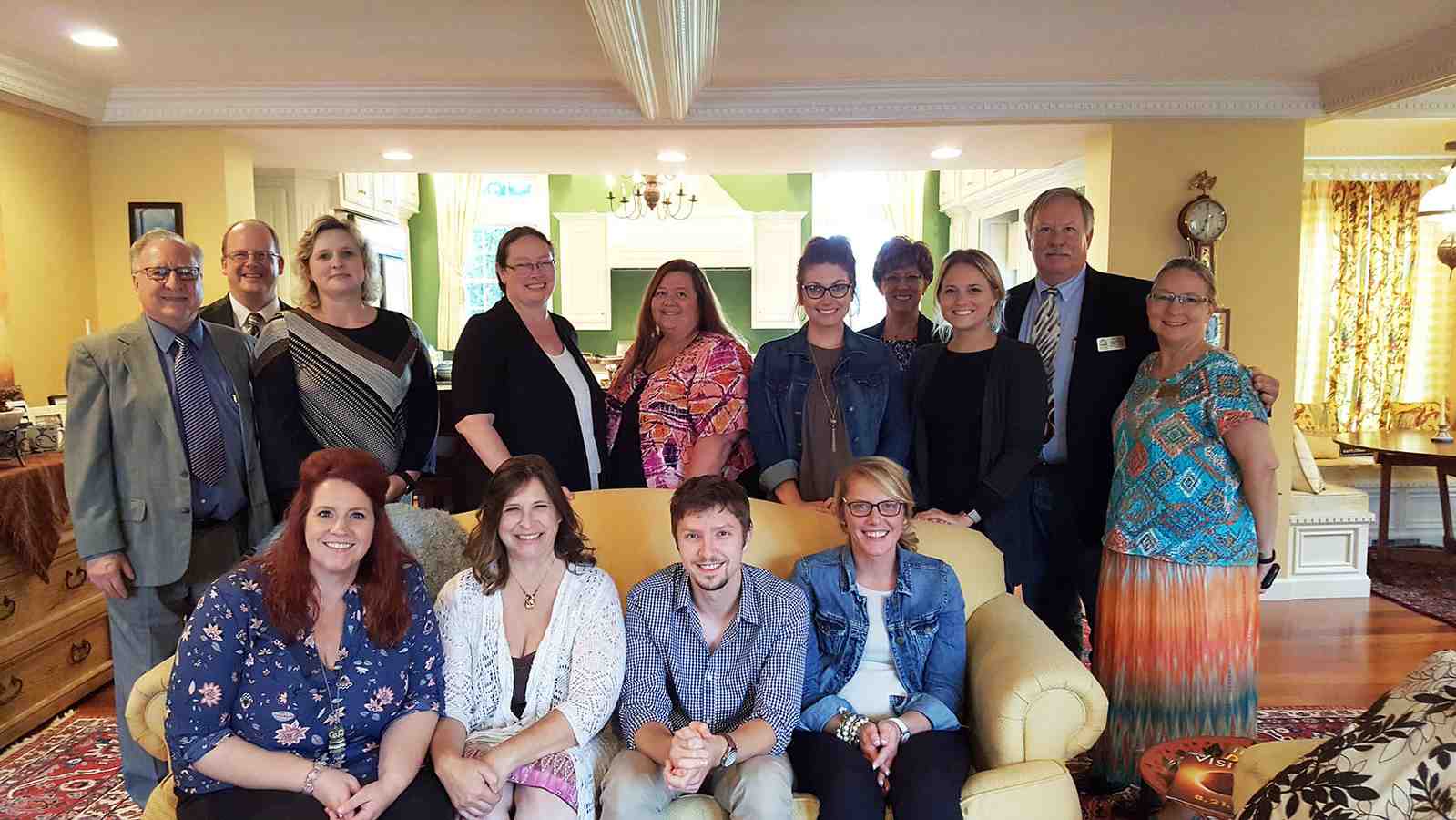LWC’s Doctoral Program in Counselor Education Receives CACREP Accreditation

PICTURED: The Lindsey Wilson College Doctoral Program in Counselor Education & Supervision (CES) received CACREP accreditation in January thanks to a decision by the board of directors of the Council for Accreditation of Counseling and Related Educational Programs (CACREP). The 72-hour, weekend PhD program is in its fourth year at LWC. The CES program is designed to prepare leaders in the field of professional counseling. Pictured is the most recent cohort in the CES Program: Back row from left, Professor of Counseling Patrick Hardesty, Director of Counselor Education and Supervision Jeff Parsons, CES Student Connie Elkins, CES Student Shelia Kleiser, CES Student Tina Back, CES Student Audra Boggs, VP for Academic Affairs Patricia Parrish, CES Student Carson Economy, Assistant Professor of Counseling Ed Gunberg and Associate Dean for School of Professional Counseling Jackie Montgomery. Front row from left, CES Student Racquel Strickland, CES Student BethAnne Swick, CES Student Elijah Sprague and CES Student Melanie Erwin.
The Lindsey Wilson College Doctoral Program in Counselor Education & Supervision (CES) received CACREP accreditation in January thanks to a decision by the board of directors of the Council for Accreditation of Counseling and Related Educational Programs (CACREP).
The 72-hour, weekend PhD program is in its fourth year at LWC. The CES program is designed to prepare leaders in the field of professional counseling.
LWC Program Director for Counselor Education and Supervision Jeff Parsons says that while CACREP accreditation is not a requirement for doctoral programs – the evolving field of counseling and LWC’s commitment to students made the college put accreditation at the forefront.
“We designed the program so that CACREP would fit into the entire framework,” said Parsons. “Even though it’s not a requirement for doctoral programs, there’s a shift that’s happening in the field and students care deeply about it.”
Parsons notes that while accreditation used to be more of way to show distinction amongst other programs, in recent years it has become something different.
“It (CACREP accreditation) used to be something programs did to show quality, but it wasn’t mandatory,” said Parsons. “In the last several years we’ve seen a shift. In Kentucky, recent legislation passed requiring CACREP accreditation for master’s level graduates in order to get licensed as a counselor. We think it’s important to be prepared and to strive to have that quality for all programs.”
The LWC’s doctoral program in counselor education and supervision was created in 2014 to accommodate working adults by offering courses one weekend per month on the LWC A.P. White Campus in Columbia. In the interim period, students will stay connected to classmates and professors through online learning communities. The program will take about four years to complete.
“One of the things I’m particularly proud of about the CES program is the dedication of the faculty toward continual improvement and change,” said Parsons. “Our faculty work remarkably hard on accreditation but they also work on program quality, instruction and student engagement. We do a lot to keep an objective eye on where our program is and where it needs to be.”
To learn more about the Council for Accreditation of Counseling and Related Educational Programs (CACREP) visit http://www.cacrep.org.
Click here to learn more about LWC's Doctoral Program in Counselor Education & Supervision (CES).